
Once production basics were determined, customers created a plan for filling, capping, and labeling their hand sanitizers.
At the onset of the coronavirus outbreak, the Food and Drug Administration (FDA) and the Centers for Disease Control and Prevention (CDC) advised the public to wash hands often with soap and water for at least 20 seconds, especially after going to the bathroom, before eating, and after coughing, sneezing, or nose blowing.
However, if soap and water are not available, they recommended the use of an alcohol-based hand sanitizer. Cue the hand sanitizer shortage.

From grocery outlets and club stores to convenience shops to mega marts, there’s been a national shortage of hand sanitizer.
That’s when the FDA and hero companies stepped up.
Since hand sanitizers are over-the-counter (OTC) drugs regulated by the FDA, the FDA had to develop guidance documents for the temporary preparation of hand sanitizers by companies in other industries. This change allowed businesses to pivot their primary product production to help meet hand sanitizer demands.
While given some grace by the FDA, companies new to the hand sanitizer market still need to abide by critical standards, such as including a Drug Facts label with an ingredient list and necessary warnings and precautions, particularly regarding use in children.
For more insights, explore these FDA hand sanitizer production resources.
- Temporary Policy for Preparation of Certain Alcohol-Based Hand Sanitizer Products During the Public Health Emergency (COVID-19)
- Policy for Temporary Compounding of Certain Alcohol-Based Hand Sanitizer Products During the Public Health Emergency
- Temporary Policy for Manufacture of Alcohol for Incorporation Into Alcohol-Based Hand Sanitizer Products During the Public Health Emergency (COVID-19)
One industry that was able to pivot quickly were those making spirits, namely distilleries. For example, Cardinal Spirits, a craft distiller in Bloomington, Indiana, made the production shift and is now making, bottling, and labeling nothing but hand sanitizer.

(Photo credit: Cardinal Spirts)
Along with water, ethanol, the high-proof alcohol used as the base for craft spirits, is the main ingredient in hand sanitizer. Distilleries like Cardinal Spirits have both key ingredients in abundance. The other components needed to complete a basic hand sanitizer are glycerin and hydrogen peroxide, which are fairly easy to get from distributors.
Following the FDA guidance and locating all the right ingredients is half the battle in pivoting product production, the other half is finding appropriate packaging, labels, and distribution avenues.
Pack Leader USA Customers That Pivoted — and Are Making a Positive Impact
We’re so proud of our customers who also made the hard decision to shift their business plans so that they could make hand sanitizer during this unprecedented time. We want to highlight a few that have bought equipment from us so that they could fill, cap, and label their sanitizing products.
ArtNaturals

(Photo credit: Art Naturals)
ArtNaturals, a California-based company manufacturing clean, chemical-free beauty products at fair prices, is doing all they can to keep up with their customers’ hand sanitizer needs. They purchased two PL-501 automatic wrap-around labeling machines to add to their hand sanitizer assembly line.
Briotech

(Photo credit: Briotech)
Briotech, located in Washington, makes effective and sustainable health and beauty products from Hypochlorous Acid (HOCl) — a natural healing and disinfecting molecule. To make their hand sanitizer line efficient, they purchased a PL-501, a labeler designed to apply pressure-sensitive labels to round containers.
Recently, to show community support, they donated hand sanitizer and other products to the blood drive hosted by the Seattle Mariners and Bloodworks Northwest.
Optima Products

(Photo credit: Optima Products)
Optima Products provides co-packing to nutritional and supplement manufacturers full turnkey co-packing services from their Houston-based facility. They are using our PL-501 and FL-12 to fill and label their hand sanitizer bottles.
Maxill
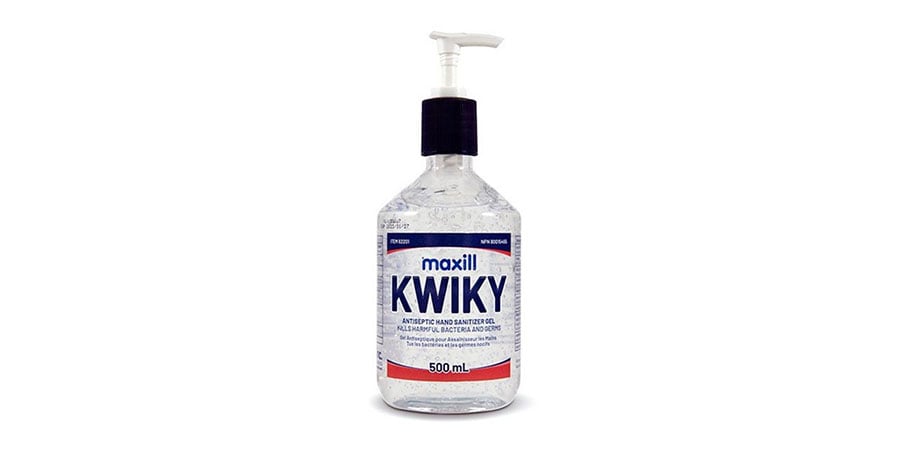
(Photo credit: Maxill)
Maxill, located in Ontario, Canada, manufactures consumable, infection control, and disposable product lines used in dentistry. They are using the Pack Leader USA PL-501 and PRO-625W to label hand sanitizer bottles, which they are both selling to the public and donating to frontline locations such as St. Thomas Elgin General Hospital.
EverPure by EverBrands

(Photo credit: H& by EverPure – EverBrands)
California-based EverPure is proud to leverage its expertise and capacities to manufacture and sell hand sanitizer spray online. They have generously donated their sanitizing sprays to Los Angeles-area fire stations, police stations, hospitals, transplant centers, and government offices. To speed up their production line, they purchased our PL-521, a horizontal wrap-around labeling system.
These are only a few of our customers that are working hard to keep their workers employed while doing what they can for the greater good. We’re so thankful for them both as customers and as contributors.
Partner with Pack Leader USA for Filling, Capping & Labeling
Is your company ready to pivot? Or maybe you’re already setup for hand sanitizer manufacturing, but need equipment like a semi-automatic filling machine or an automatic labeler.
You’ve determined the “recipe” for your hand sanitizer and figured out the production basics; now it’s time to think about packaging and assembly.
How do you plan to fill, seal, and label your containers?
Many companies that have pivoted to making hand sanitizer are handling operations manually, which can be a tedious and time-consuming process. Automated filling, capping, and labeling machines can streamline and speed up order fulfillment efficiently and accurately. They not only speed up your production line but also reduce errors and ensure that your products and packages are properly labeled and easily trackable.
If you’re making large batches like Cardinal Spirits (several-thousand-gallon batches at a time), then automation is the only way to go.
If you’d like to learn more about our filling, capping, and labeling options, our knowledgeable staff is ready to help. We’d love to talk with you about our equipment options and what would fit best into your production plans.
More articles:
- COVID-19 Outbreak Product Demand: The Right Labeling Machine Can Help Your Lines Move Faster
- Coronavirus Panic Buying: What’s Selling Out & How Manufacturers Can Keep Up
- Fill & Seal Your Containers and Bottles More Efficiently With a Filling & Capping Machine
- 4 Ways an Automatic Labeling Machine Can Streamline Order Fulfillment
.webp?width=200&height=114&name=2x-Packleader-logo-large%20(1).webp)

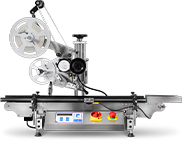
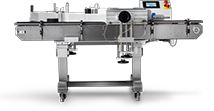
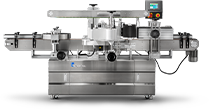
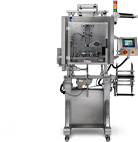
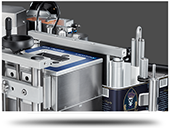
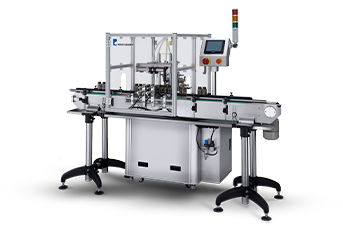
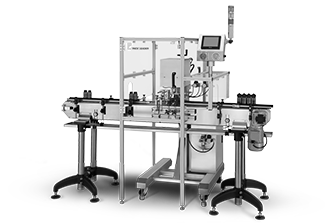
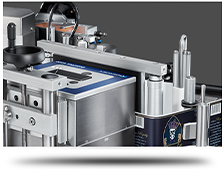




.webp?width=360&name=2x-color-logo%20(1).webp)